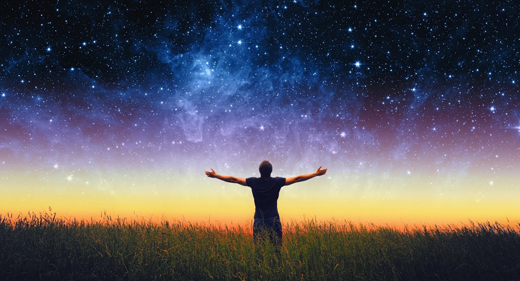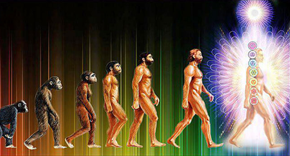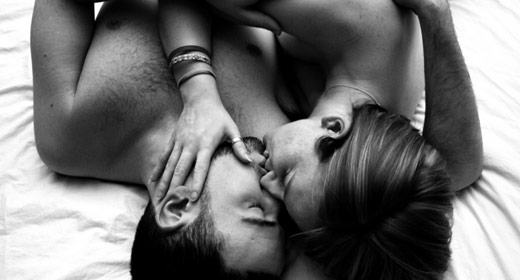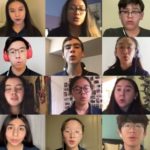Donna Quesada: Jonathan Robinson would you be willing to share what works for you?
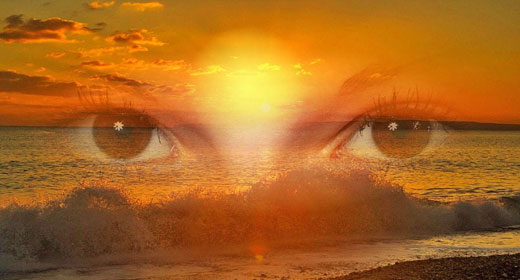
Jonathan Robinson: Something that works for me is…I often do something called The Headless Way, which was a popular book many years ago. And you know, from our point of view, we don’t have a head. Think of it. You look out and you see somebody else’s face, but you don’t see yours.
DONNA: Right!
JONATHAN: So that reminds me that I am kind of back here in this field of awareness and there’s this…there’s these arms coming out of this empty space. That’s how it looks to me. Like…there’s arms coming out of an empty space. I see something in front of here. And so, I identify with what’s behind this body, rather than identifying that I am the body. So sometimes, I’ll even say that, I am the field of awareness behind this body that is taking in sense impressions, and feels just a piece of this moment, where I am a witness to a world projected in front of me. Now that’s a lot of words, but if those words mean something to you, then every time you look, you see. Like…you’re in this three dimensional movie and you are the projector. This awareness is like the projector in the back of the movie…and that helps me to get to the place of witness consciousness where I’m just watching this ego, this personality, these thoughts, just kinda go by this screen of awareness.
DONNA: So, are you talking about simply recalling that I’m just this…I’m behind this film, so to speak, and I’m watching it play out…Is it just the remembering of that? I’m just this headless stream of awareness?
JONATHAN: Yeah, it’s a remembrance of it, but it’s also a direct visual experience. Because from my point of view, there’s an arm coming out of this empty space. Look at yourself, you know, it’s like there’s this body but you don’t see your head. And that’s kinda like a visual reminder that everybody’s different. Some people they tune into by trying to not be aware. Try to not be aware now. You can’t do it! It’s always there. So, little tricks can help, and that’s largely what we talk about in the Awareness Explorers pod cast.
DONNA: Now, like the short meditation we did together, it sounds like it’s just a technique toward mindfulness which has become something of a buzzword in the last decade, or so. But, how does that act of becoming present or mindful, help us become peaceful? And you know…and again, I’m speaking from a devil’s advocate point of view, for those who might be watching, who haven’t found a kind of practice route into awakening…and maybe are experimenting with different techniques or practices. How does simply using the body, or using different angles to become present, work? Why? Why is it good? What is the big deal about now? Let me just put it…what if right now is full of pain and misery and lots of yucky stuff going on?
JONATHAN: You know, in actuality right now is never full of anything. Right now is just one second. And then, you know, if you’re watching a movie and you see just one second of it…you don’t really know what’s going on the movie. It might be a horror movie, but all you see is somebody going like this. So mindfulness is slightly different than what I’m talking about; although it’s a step in that way. Mindfulness is getting more in the present moment, like, more in your body. Like, I’m aware that this hand is in front of my…is moving. And you like…become aware of that.
Then you can say, the next step towards deeper peace, is to become what’s aware of that. Like, who are you? What is aware? And that’s an even deeper level of peace than what mindfulness can give. But mindfulness is a good beginning because the more present you become, the less caught up you are in the stories of our life. You know, at one time in my life I had all kinds of trauma growing up, and I was lost in that trauma and I’d always have my story. But as I became more aware of this moment, there’s no trauma that happened twenty years ago, you know? So, in this moment, there’s just a guy talking, and there’s someone listening. And then, there’s somebody who’s even aware of a guy talking, and that awareness is where real peace comes from. I’ve interviewed a lot of spiritual teachers and I ask them, “what’s the one thing that everyone agrees on?” They all agree that becoming aware of this awareness in deeper ways, is the key to a deeper relationship with God, and a deeper relationship with peace. But, it’s not just theoretical; there are ways of doing that, and it need not take that long. It’s always there.
DONNA: You talked about trauma. Do we need trauma? The so-called,“dark night of the soul” in order to push us, or propel us into this desire to awaken?
JONATHAN: I think some people do. But, I think it’s not a necessary ingredient. You know, it’s like a motivator. Do you need a fire under your butt to get motivated? Well some people do, but it’s not absolutely required. I try to motivate myself now, without a whole bunch of drama or trauma.
DONNA: Is there ever a time where distraction serves a purpose? You know,we’re talking about the importance of being present because when I’m here right now, where is the trauma? But, is there ever a time where being distracted is a useful thing?
JONATHAN: Well, I think all of us need certain entertainment…a certain amount of not focusing on heaviness. You know, life has a lot of different possibilities. I think we all want balance in our lives. So, every now and then I eat a cookie, and I also eat good salads. And every now and then I work through my stuff, and every now and then, I watch TV. And I think that creates a balanced human being.
DONNA: When you were a “lousy psychotherapist,”I imagine you worked with couples. One of the biggest problems that people bring to therapists has to do with their personal relationships. And, I know you’ve written on this topic quite a bit. And, I really loved what you said about intimacy…that three things need to be there; “The three As.”Acknowledgment, acceptance, and…is it appreciation?
JONATHAN: Yeah…yeah, yeah.
DONNA: Why are these three things so important? And, can you speak about them? What does that mean, to acknowledge?
JONATHAN: Acknowledge means that you agree somebody’s having the experience they say they’re having, which is really the key to empathy. People want empathy and understanding in relationships and if you give them that, they will be able to be at their best to give you what you want. But most of us are not good at giving this. So, if somebody comes to you and says, “Oh you were rude in that last interview and you’re really disruptive.”Well, you could explain to them that you weren’t…but they won’t listen to you until they feel acknowledged for their experience. So, if you say, “Oh sounds like you felt really bothered by some of my questions and that was really hard on you.”They’d say, “Yeah!” Well, until they’re acknowledged for their experience, they won’t really be good at hearing you. So, a lot of times…I wrote a book called More Love, Less Conflict, where I teach people simple methods to help get to understanding and empathy. Because once couples have that, then everything else goes well. A lot of people…they…they communicate in a way that fosters blame, and blame never works. Never once have I blamed my wife, and she said, “Oh yeah! Now I see what you’re talking about! Thank you for showing me the errors of my ways!” That never happens.
DONNA: So acknowledgement, to make it practical for someone watching…and, this is at the heart at many people’s dissatisfaction in life…is simply saying…listening…when they say, “you’re not helping me enough,” or, “I felt like you…you weren’t…”I don’t know…What’s the complaint people bring to you? “You’re not taking me out enough…”or, “helping around the house enough…”
JONATHAN: Yeah, yeah.
DONNA: So, acknowledgement is simply listening and communicating that empathy?
JONATHAN: Yeah, getting that you get their feelings…
DONNA: Okay.
JONATHAN: …and that could be as easy as saying, “It sounds like you felt really…blank.”
DONNA: Okay.
JONATHAN: It’s not rocket science. It’s very simple. But it’s like a super-power because most people don’t know how to do that well. So, if you’re somebody like Oprah, who’s great at empathy…she went from the bottom of society to the top, based on simply that she really cares about people and she shows her empathy.
DONNA: And so, acknowledgment, appreciation…I think appreciation is maybe self-evident…simply expressing yourself, verbally about the ways that you feel gratified in a relationship, or, the things you like about your partner. Would that be correct?
JONATHAN: Yeah, it can be. Give me as simple as, like…if I were to appreciate you now, all I have to do is fill in the blank. Something I’ve noticed about you, Donna, that I appreciate, is that your questions come from true curiosity, like…you’re really interested in this, and that makes for a better interview. And, I noticed that you really are very sincere in your questions, and I really…I really appreciate that. Now, as I was already thinking that…but, when we say our appreciations, it creates more connection. It creates more love. And in my opinion, the most important thing a human being can do, is learn how to create more love, or more peace. And so, your mission, should you decide to accept it, is to find what ways lead to more love and more peace in your life.
DONNA: And so, just to complete the three “A’s,”the final would be: Acceptance. Accept your partner, warts and all. Meaning, this is the person you married. And to me, in my mind, that means, don’t try to change each other. And I think that’s the biggest pitfall in…in relationships, is that…slipping into that tendency to try to change the other. And so…
JONATHAN: Yeah, ironically. Ironically, the best way to change somebody is to fully accept them how they are, right now.
DONNA: Mmm.
JONATHAN: Because when…when you try to change someone, they necessarily tend to resist.
DONNA: The defense mechanism.
JONATHAN: Mhmm. When you love somebody as they are, they naturally want to be a better partner for you. So, when I… at first I married my wife, how I wanted her to be. And then, over time, I learned to marry the person that she is. And as I did that, she became more of the person I wanted her to be.
DONNA: Lovely. You know it seems to me, a more important question to ask about these things…because we’re talking about how to bring peace into peoples lives, in areas that are big, like relationships. And so, to me, it seems like the question to ask is, what prevents us from doing this? What prevents us from this kind of intimacy? What are the blocks toward acceptance, acknowledgment, and appreciation?
JONATHAN: Well, if you look at the word intimacy, some of the instructions are actually in the word, hidden in the word. Into me see. So, when you reveal stuff about yourself, it creates a vulnerability that allows people to connect with you. In this culture, we do not learn how to communicate in that way. We learn how to communicate through blame. Look at our politics now; it’s all who’s to blame. And so, in our relationship…so, we learn that language…and it doesn’t work in relationships. So, we have to learn how to communicate in a vulnerable way. Say what we appreciate. Say what we’re feeling. Say what we’re needing. You know,just a simple technique…“I’m feeling ‘blank,’and I’m really wanting ‘blank.’” That can help…go a long way because you’re revealing stuff about yourself and by doing these little vulnerable statements, it creates more connection and more love.
DONNA: So in answer to the question what prevents us from this intimacy, it would be fear of being vulnerable?
JONATHAN: Fear of being vulnerable and the tendency to communicate in ways that are about blame, rather than about appreciation and vulnerability.
DONNA: It’s funny. Like gratitude, vulnerability has become kind of this self-help, or dare I say it, New Age buzz phrase. But yet…and I can’t help but think of the Ted Talk you know, by Brené Brown. And it’s a wonderful talk and it really is true! Can you speak about why it really is true that we need to be able to go there? To be vulnerable, in order to have that intimacy? Why…why is it so important?
JONATHAN: It seems that…once again, going back to the word intimacy…into me see…is what we want. When we we know somebody’s pain, or we know their…I guess, allows our heart to open up. When we see somebody vulnerable it allows us to let go of our own defenses…
DONNA: Mmm.
JONATHAN: …and see how we’re connected. Because we all experience pain. So, if you say that you’re really nervous, I know what that’s like. If I say that I have a stomachache, you know what that’s like, you know? So, somehow, it allows us to let go of these ego defenses that we build up, and to feel out commonality. And once again, the…what helps, is simple methods that can help because we haven’t learned this language.
JONATHAN: Here’s a method.
DONNA: Okay! Yeah!
JONATHAN: Yeah, completing this sentence back-and-forth. “If you really knew me…”So, Donna, if you really knew me, you’d know that I’m always a little afraid of coming off too much like a salesman in these interviews, cause I hate salesmen. I hate…I hate that. But, I’m very passionate, so I’m always like…am I coming off as a salesman? Or,am I…do I seem sincere? So, if you really knew me, you’d know that’s what’s going on with me. How about you?
DONNA: Okay. So…okay, so, it’s being brave to share something about yourself that you normally would be guarded about.
JONATHAN: Exactly.
DONNA: Okay, okay. Hmm. If you knew me, you’d know that I tend to be perfectionistic, you know? That’s the Virgo thing.
JONATHAN: Yeah, yeah.
DONNA: So, relaxing and just having a conversation, and even stuttering sometimes, and getting to the point where that’s okay, is a challenge.
JONATHAN: Yeah, yeah.
DONNA: There you have it.
JONATHAN: You do that back-and-forth a few times…you get to know somebody pretty well.
DONNA: Wonderful! So that’s a good Thanksgiving table game.
JONATHAN: Yeah!
DONNA: Jonathan, in our last few minutes together, is there anything you’d really like to share with the world, in terms of your mission to bring people to inner peace quickly?
JONATHAN: Well as you’ve heard, part of what I try to do, is get really good methods out there. Methods that take under a minute. And my thought is, if you find something that leads to more connection, like…we just did a simple method, or, some of the awakening methods we talked about earlier…if somebody gets that from what I say, they have a friend for life. ‘Cause they can use that for their rest of their life to create moments of awakening, or moments of love. And that feels really good to me. That’s what changed my life. I was a very depressed teenager, but I found certain things that worked for me. And when you find something that works for you, then keep at it. You know…‘cause our…our job collectively, is to get to more peace, more love, and from there, from our abundance, then we can better help other people.
DONNA: I like that. To call the little technique “a friend.”It’s like a little special thing you have in your pocket and it can get you out of trouble.
JONATHAN: Yeah, yeah. Uh-huh. And, better able to serve people because when we’re lost in our story, in our suffering, for days, or weeks, or months on end…we’re not really doing any good to ourselves or other people.
DONNA: And, that affects every area of our life, whether it’s our work or our relationships.
JONATHAN: Exactly.
DONNA: Or, our spiritual practice.
JONATHAN: Mhmm.
DONNA: Where can people find you?
JONATHAN: Well, I have on a website called FindingHappiness.com.
DONNA: FindingHappiness.com.
JONATHAN: There’s a lot of free stuff on there, or, at AwarenessExplorers.com where they can download the podcast.
DONNA: Wonderful. Is there anything else you’d like to say?
JONATHAN: Thank you for this opportunity! I always end my podcasts Awareness Explorers by telling people, “Keep exploring! ”Keep investing in your own magnificence, and that’s the best way to serve yourself and other people.
DONNA: Thank you for that. In the spirit of exploration, I’ll say goodbye and thank you once again, Jonathan, for sharing your time with us. I know I have enjoyed it, and I know our viewers will, as well. It was nice to meet you.
JONATHAN: Thank you, Donna.
DONNA: Bye-bye.
JONATHAN: Bye.
Read and Watch Part I Here: Awakening Is Really A Shift In Identity, From Your Personality And Ego, To Pure Awareness.
Read and Watch Part II Here: How To Align With Your Higher Self

